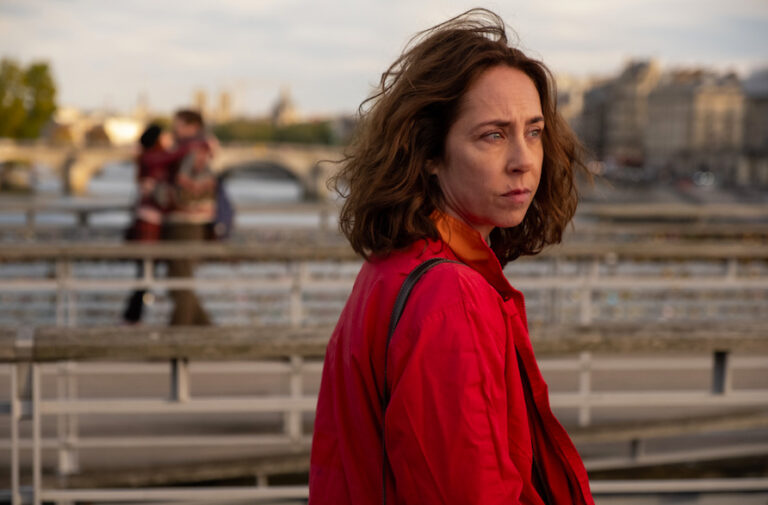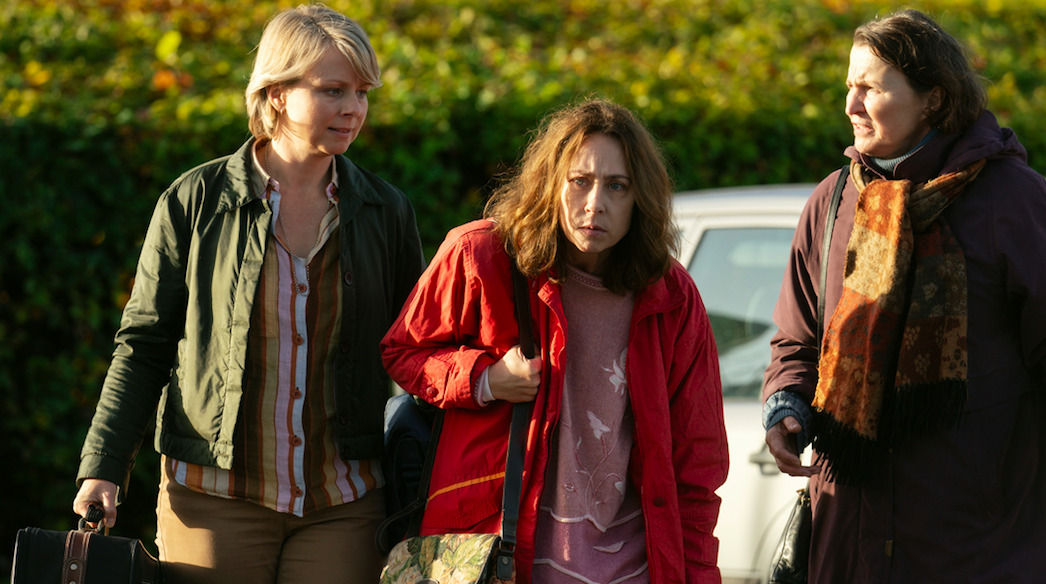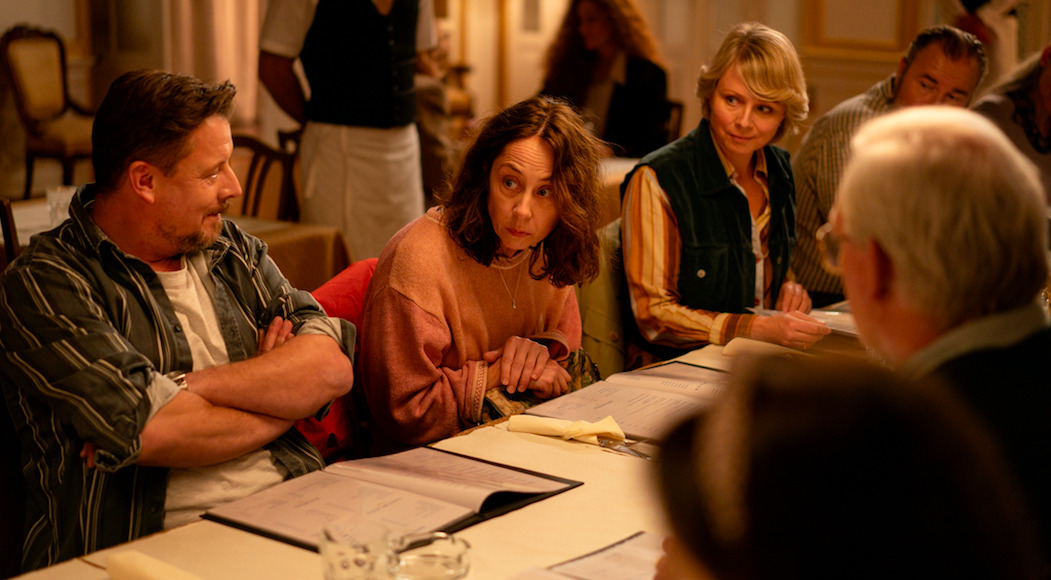
The film, written and directed by Niels Arden Oplev, begins with a beautiful scene depicting the character of Inger, played by Sofie Gråbøl, combing her hair. This moment evokes Marina Abramović’s Art must be beautiful, Artist must be beautiful. In 1975, this apparently innocuous gesture was used by the performance artist as a tool to question conventions of beauty, art, and the feminine ideals in our culture. The film Rose, uses the mundane in a similar way to make us ponder upon the perception of mental illness and the way society responds to it.
The story unrolls over the course of a week, when Ellen (Lene Maria Christensen) decides to take her schizophrenic sister Inger (Sofie Gråbøl) to Paris, and is supported by her husband Vagn (Anders W. Berthelsen). The mentally ill woman is temporarily discharged from the facility where she resides, even though her mother Gudrun (Karen-Lise Mynster) disapproves. Ellen is however convinced that this adventure will benefit her disabled sister.
The trip occurs on a bus with other Danish people traveling from their home country, through Germany to France. The group is planning to visit the D–Day Museum in Arromanches, Monet’s garden, Versailles, the Musée d’Orsay and Napoleon’s gravesite known as Dôme des Invalides. All the travellers embody a different type of sensitivity towards mental health disorders. Christian (Luca Reichardt Ben Coker), a pubescent boy, demonstrates utmost compassion. His mother, Margit (Christiane Gjellerup Koch), is also empathetic. But Christian’s father — Margit’s husband — Andreas (Søren Malling) is on defensive mode, he feels threatened by Inger’s schizophrenia. He is accepting only in the moments in which Inger displays lucidity and turns events in favour of the entire group. Ole (Peter Gantzler), the bus driver, tries to accommodate the desires of all the travellers and displays an understanding towards Inger, as does the taxi driver from Algeria, Nadir (Illyès Salah).

The cast is extraordinary in the portrayal of each of the characters. Sofie Gråbøl sublimely depicts the multifaceted complexity of mental illness. There is demure poetry in Inger’s perturbed soul that touches all those who interact with her. She alternates moments of sanity with instants in which she speaks without filters — she even describes to Christian her sexual encounters with Jacques (Jean-Pierre Lorit), the man she loved that she claims made her lose her mind. “When he left I was much more alone than before I met him,” she says with dismay. Fate, with a little help, will take Inger back to where Jacques once lived: 13 Rue Malebranche.
Rose brings to the screen a story that is very personal to the Danish filmmaker, since it’s inspired by his two sisters and his brother-in-law and a trip they took in 1997. Maren Elisabeth, who is schizophrenic, has been looked after by her sibling Kirsten, ever since she was eighteen. This is when she returned to Denmark after spending a year in France working on a farm and a restaurant. She was changed: the young woman had started talking to people who were not there and kept hearing voices. This occurred forty years before Niels Arden Oplev started working on the film Rose, and his intention was to portray how the diagnosis often becomes a barrier between the patient and the so-called normal people.
Throughout the film we witness how this mentally afflicted woman is very accomplished: she speaks French, plays the piano, is fond of Impressionist painters, and has read all of Albert Camus’ books. However, she has to deal with additional burdens, above all the evil presence of Goldensun, the voice in her head that torments her.

The bus ride is a narrative device to show how people are obliged to be in proximity with someone suffering from a mental illness. Paris provides the touch of lyricism. It was also the stage of Princess Diana’s death and we are shown how certain tourists, just weeks after her tragic demise, craved to go visit the Pont de l’Alma. This puts a magnifying glass on the social phenomenon of the spectacularisation of death, but also serves as a plot twist that provides a potential explanation of the film’s title.
In Rose schizophrenia is confronted with compassion and humour. Through it all Inger is very aware about her condition and warns people around her, but at the same time feels she has to fight the stigma. In fact, at one point she blurts out: “I am not contagious.” Whenever Inger speaks, things become absurdly comical. When she feels affection for someone she says she has the urge to strangle them. But Inger also teaches those around her to be tenderhearted, through meaningful actions rather than mellifluous words. She gives proof of great humanity when she cannot stand the sight of a dead hedgehog abandoned on the road, because “it’s not dignified to leave it lying there.” What follows is utterly inspiriting.
Rose shatters the prejudice surrounding mental illness and shows how it can be an enriching experience to interact with someone who has a different mindset.
Final Grade: B+

